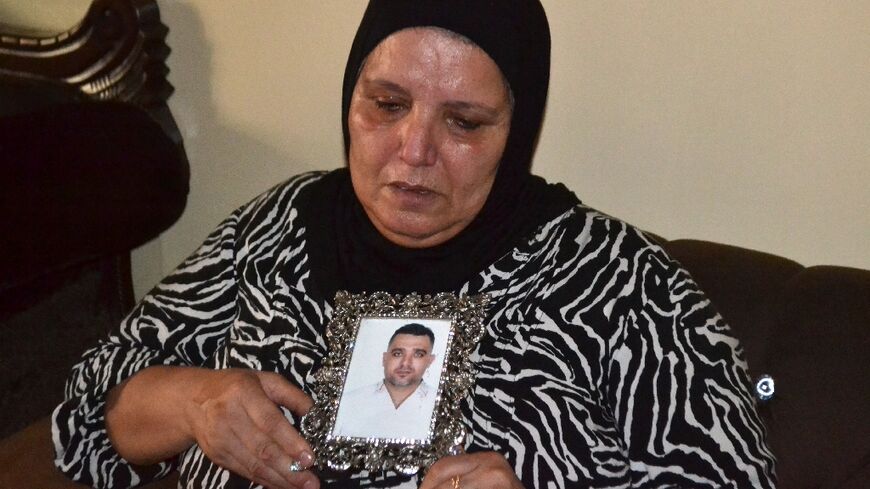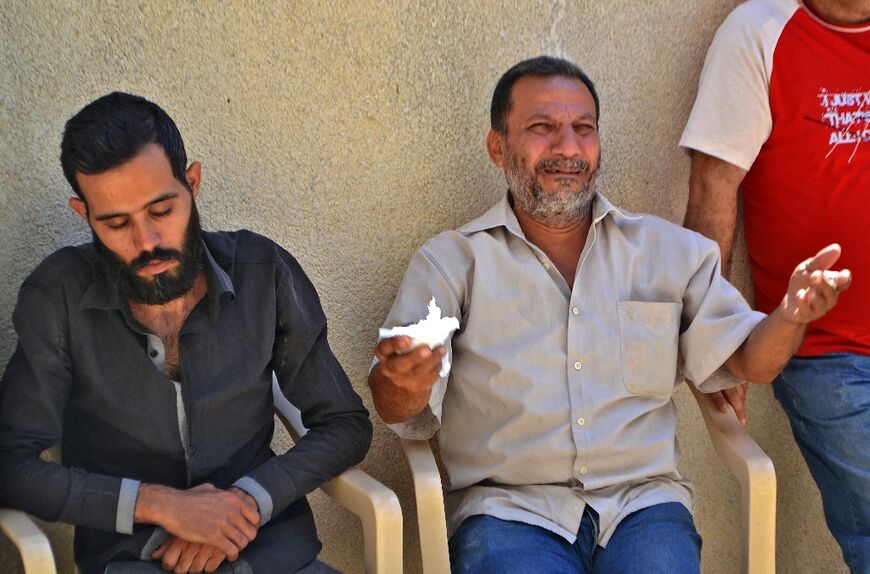Issued on: 23/09/2022 -
More than 700 children have died from measles in Zimbabwe in an outbreak first reported in April. Many were unvaccinated because of religious reasons, Information Minister Monica Mutsvangwa said.
It’s possible that I shall make an ass of myself. But in that case one can always get out of it with a little dialectic. I have, of course, so worded my proposition as to be right either way (K.Marx, Letter to F.Engels on the Indian Mutiny)

The cliff-top ruins of an ancient castle long claimed as the birthplace of the legendary King Arthur is "at risk of being lost for ever" as climate change quickens the pace of coastal erosion, a UK heritage body warned on Friday.
Tintagel Castle in Cornwall, southwest England, attracts tens of thousands of visitors each year, fuelled by the legend of King Arthur and his fabled Round Table.
But the structure is now among six important historic coastal sites at risk "as a result of accelerating coastal erosion", charity English Heritage said.
"Erosion along England's coastline is nothing new but the rate of land loss that we have seen over the past few years is alarming, and some scenarios indicate that sea levels could increase by up to a metre (3.2 feet) by the end of the century," said English Heritage Estates director Rob Woodside.
In the last century sea levels rose by 14 centimetres along the southern coast of England, according to the body.
"Climate change is accelerating the issues faced by our coastal heritage. Rising sea levels and more regular storms pose a real risk to the future of many of our sites," Woodside added.
The legend of the ancient English king and his Round Table of knights has inspired numerous filmmakers over the years.
Although researchers have never established if King Arthur was a real person or a mythical hero, some historians believe there was an important English leader called Arthur around the fifth century, although not necessarily a king.
English Heritage said parts of the cliff directly in front of Tintagel Castle's visitor centre recently fell into the sea due to coastal erosion.
This and other damage caused by storms last winter alone would cost £40,000 ($44,000) to repair, the charity said. A MERE PITTANCE
"Protecting our coastal heritage from the effects of erosion and flooding is one of the greatest challenges English Heritage has ever faced," it said.
"Sea levels are rising at their fastest rate for more than 2,700 years and are predicted to surge by up to a metre before the end of the 21st century."
Other sites in southwest England listed by English Heritage as being at risk include Hurst Castle and Calshot Castle, both built by the 16th century king Henry VIII in Hampshire, southern England.
English Heritage said it was launching a public appeal via its website to raise funds to shore up the sites and make them less vulnerable to coastal erosion.
"If these coastal properties are to survive the coming decades, we will need to strengthen their walls and build sea defences to protect them," it added.
© 2022 AFP


















REST IN POWER
Pharoah Sanders, Saxophonist Who Pushed Jazz Toward the Spiritual, Dead at 81
Daniel Kreps

Pharoah Sanders, the saxophonist who helped John Coltrane explore the avant-garde and pushed jazz itself toward the spiritual, has died at the age of 81.
Record label Luaka Bop, which released Sanders and Floating Points’ acclaimed collaboration Promises in 2021, announced the jazz legend’s death Saturday; no cause of death was provided.
“We are devastated to share that Pharoah Sanders has passed away,” the label wrote on Instagram. “He died peacefully surrounded by loving family and friends in Los Angeles earlier this morning. Always and forever the most beautiful human being, may he rest in peace.”
The Little Rock, Arkansas-born Farrell Sanders first came up in the Bay Area jazz scene before moving to New York City, where he initially struggled.
“Unable to make a living with his music, Sanders took to pawning his horn, working non-musical jobs, and sometimes sleeping on the subway,” the saxophonist’s website said. However, Sanders soon found work alongside fellow innovators like Sun Ra (who told him to adopt the name “Pharoah” instead of Farrell), Ornette Coleman and John Coltrane, who after his landmark A Love Supreme was beginning to experiment with free jazz.
Sanders’ joined Coltrane’s group on tenor saxophone in 1965, a year that saw Coltrane record three of his avant-garde masterworks: Ascension, Meditations and Om. Following Coltrane’s death in 1967, Sanders briefly performed alongside his widow Alice Coltrane (including her classic Journey in Satchidananda) before embarking on his own path as leader.
In 1969, Sanders released what is considered his most revered work, Karma, which features his side-and-a-half-long opus “The Creator Has a Master Plan,” a recording that pushed spiritual jazz further skyward and one of the most influential tracks of its era.
The saxophonist continued his steady output over the Seventies and Eighties, both as leader and sideman for fellow jazz greats like McCoy Tyner, Sonny Sharrock, Idris Muhammad, Leon Thomas and many more.
While the saxophonist remained a fixture on the live jazz circuit, in 2021 Sanders returned from a nearly two-decade studio hiatus to record alongside electronic music producer Floating Points and the London Symphony Orchestra. The resulting work, Promises, has been hailed as one of the best jazz albums of the past decade.
“Consisting of a single, 46-minute work, the album is both startlingly minimal and arrestingly gorgeous,” Rolling Stone wrote of the LP.
“Only sparingly, such as one during brief, stunning episode about 35 minutes in, does Sanders break into the harsh sax ululation that he’s famous for, but overall, the piece feels like a loving sonic gift to a master from a disciple, and a worthy successor to Sanders’ foundational Sixties and Seventies epics.”
Floating Points paid tribute to Sanders Saturday following news of his death, “My beautiful friend passed away this morning. I am so lucky to have known this man, and we are all blessed to have his art stay with us forever. Thank you Pharoah.”